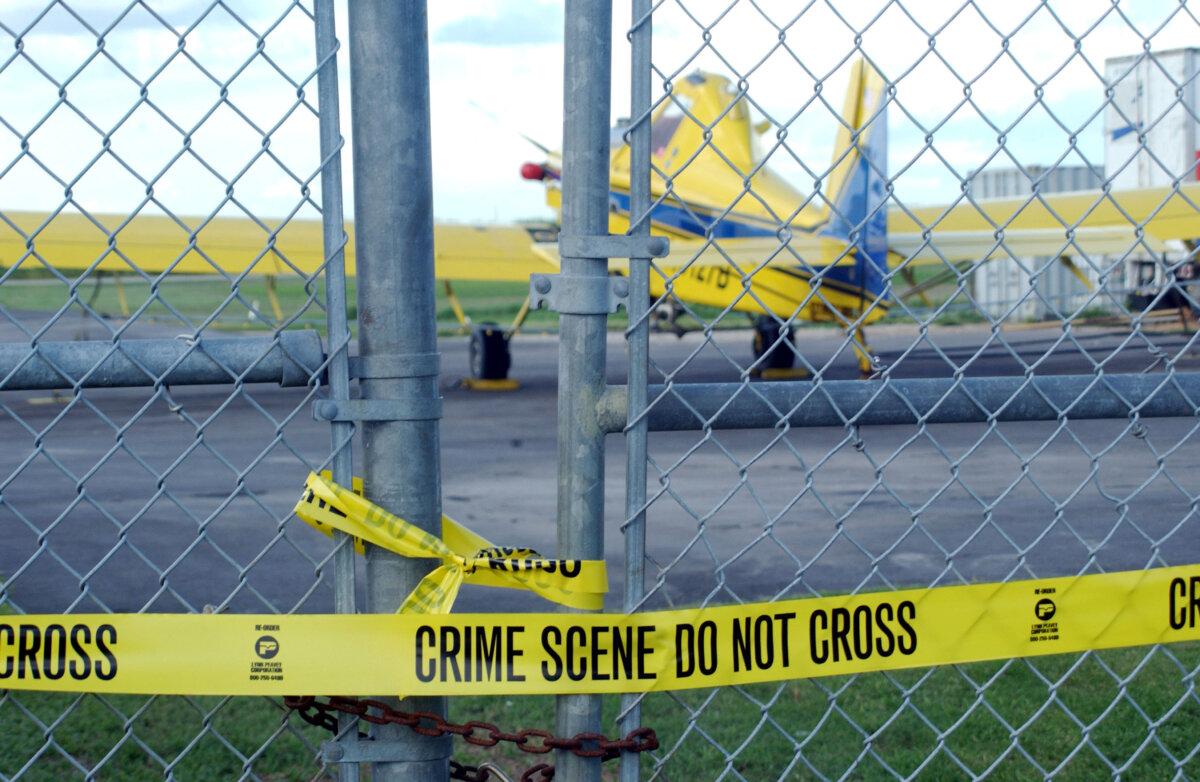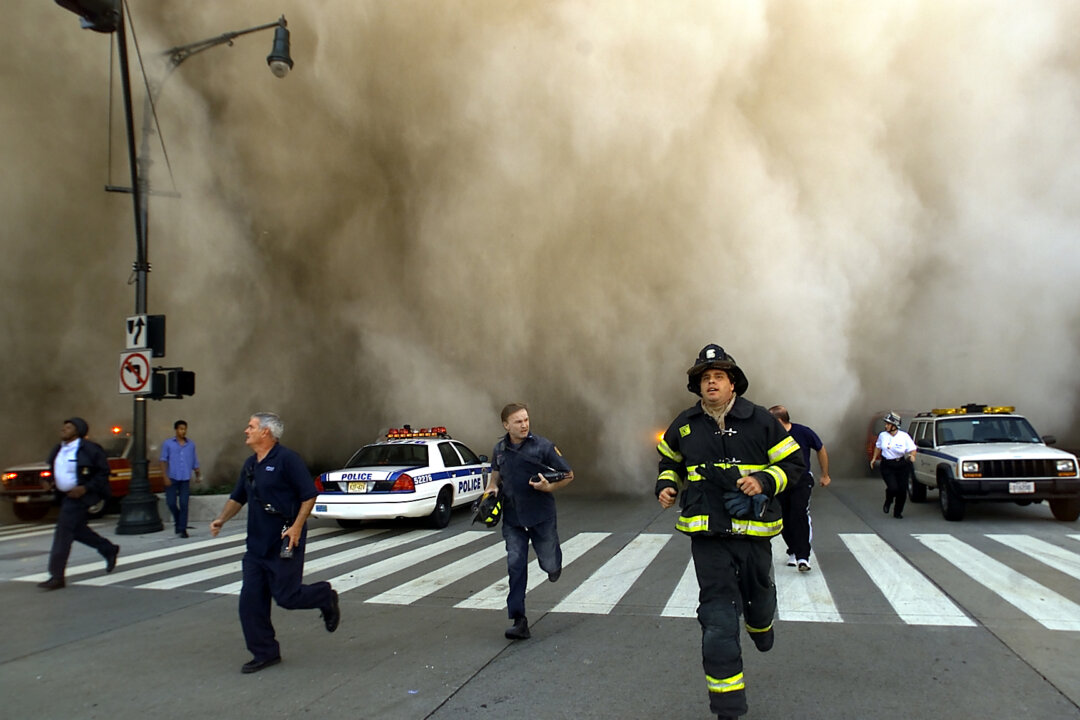Florida Bulldog founder Dan Christensen never thought that 23 years later, he’d still be covering the terrorist attacks he watched on TV.
Dan Christensen was a courts reporter for the Daily Business Review in Ft. Lauderdale, Florida, when he watched the Sept. 11, 2001, terrorist attacks unfold live on television along with millions around the globe.
He never anticipated those events 1,000 miles away would become the biggest news story of his half-century career.
Nor would he have imagined that 23 years later, he’d still be covering it for Florida Bulldog.
“It’s just been a great story, a very important story, that The New York Times and The Washington Post have failed to cover, frankly,” Christensen told The Epoch Times.
“And they should,“ he said. ”I mean, this is a local story for both of them and yet they just seem to have moved on completely from it.”
The story—unveiled over two decades of drip-drip-drip revelations and marathon court proceedings—is the 19 hijackers, including 15 Saudis, were assisted by a support network associated with, or part of, the Saudi government, he says.
It took dogged persistence by a little-known news startup to spur the investigation along.
Christensen’s Sept. 10 entry updates the status of the consolidated lawsuit lodged in 2002 in the U.S. Southern District Court of New York by 600 survivors and dependents of 9/11 victims that now includes more than 6,600 plaintiffs, including 9/11 Families United for Justice Against Terrorism.
For a decade, the case has focused on disclosing documents that allegedly link 9/11 hijackers with Saudi officials.
Saudi Arabia denies this. In a July hearing before U.S. District Judge George Daniels, the kingdom’s attorneys requested to dismiss the suit.
All await Daniels’ ruling.

Tip Leads To 13-Year Odyssey
Christensen was laid off by the Daily Business Review and said he created Broward Bulldog in 2009, a nonprofit affiliated with the Investigative News Network—now the Institute for Nonprofit News—to fill a growing gap between an event-oriented, TV-driven, nationalized news industry and local media “attempting to cover City Hall.”
The 9/11 attacks became his story in 2011 when authors Anthony Summers and Robbyn Swan, who lived locally, approached him with a tip.
The couple was set to publish their book “The Eleventh Day: The Full Story of 9/11,” which The Wall Street Journal called a “painstaking examination of questions the 9/11 Commission finessed.”
“Tony called me and said, ‘Hey, we’ve got this lead we want to run down,’” that was too late to get into the book but should be investigated, Christensen said.
Summers had learned a Saudi family living in Prestancia, a subdivision near Sarasota, had contacts with three hijackers—Mohamed Atta, Marwan al-Shehhi, Ziad Jarrah—in 2000 when they were enrolled in a pilot program in Venice, about 10 miles south.
“Atta and some of the other hijackers had been to their home” on numerous occasions, Christensen said. “And so, we ended up running, I think, a pretty good piece that ran simultaneously on our site and we also sold it to The Miami Herald. They ran it page one that day.”
That seminal Sept. 8, 2011 news story would be the portal to a 13-year odyssey that now spans 27 webpages in a 9/11 tab on what is now Florida Bulldog.

Unfolding Untold History
Christensen hasn’t just reported news, he’s made it. Long before The New York Times, CBS News, CNN, NewsNation, ProPublica, and others intervened, it was Florida Bulldog, often alone, applying the pressure that has slowly induced release of thousand pages of 9/11 documents.
In February, the watchdog outlet reported the 9/11 Commission never received troves of information, including “casing videos,” before issuing its 2004 report that determined al Qaeda was solely responsible for the attacks.
The “casing videos” of Capitol Hill and other locations were made by Omar al-Bayoumi in 1999. It was seized, along with sketches, equations, and calculations, by London police when Bayoumi was arrested 10 days after 9/11.
The materials, obtained by the FBI, documented how Bayoumi assisted hijackers Nawaf al-Hazmi and Khalid al-Mihdhar in San Diego in 2000–2001.
Florida Bulldog spearheaded litigation that revealed the FBI conducted two secret post-2004 investigations into Saudi-9/11 links, including Operation Encore.
Christensen sued the FBI twice to get Operation Encore records, and “it was so heavily censored at the time, we couldn’t see the name ‘Operation Encore’ on it.”
Florida Bulldog wrote its first Operation Encore story in December 2016. Then-Sen. Bob Graham (D-Fla.), who’d served on the 9/11 Commission, said it was significant “because it’s something that had never been released before,” Christensen said.
“Nobody realized that after the 9/11 Commission shutdown in 2004 that there was any continuing investigation. So this went on for 10 years, and almost nobody at the FBI acknowledged it, and nobody in Congress apparently knew anything about it,” he said. “Yet they dug out all this information that’s now being used to, hopefully, open this up some more.”
It is a local story with global implications and international intrigue, he said.
“That’s what’s weird about all this, man. I’m a local reporter and I have no expertise in covering international affairs. I’m no journalistic expert when it comes to covering issues in the Middle East,” Christensen said.
Florida Bulldog has no subscribers, about 5,000 daily readers, and 4,000 Facebook followers. Its five-person staff of veteran reporters—“there are no students here”—publishes up to four times a week and is largely funded by contributions.
Author Michael Connelly, who “took my slot covering morning cops” in Miami decades ago, is among Florida Bulldog’s biggest supporters, Christensen said.

‘There’s More To Come’
Covering the Saudi-9/11 connections as a small digital South Florida news site has challenges, but also advantages, Christensen said.
“The very thing that killed newspapers kind of saved my butt here by allowing me to set up the Bulldog,” he said. “And frankly, if I had not been able to do that, I would never have been able to cover this story as I have, because they would have pulled me off to do other things.”
Christensen is motivated by 9/11 survivors and families he said are treated as inconvenient nuisances by their own government and media.
They “have some good lawyers, but they don’t seem to have many friends in the press,” he said. “I’m concerned about these people and try to do my bit by just making sure the story’s covered in a reasonable way.”
In September 2021, President Joe Biden issued an executive order requiring the review of certain 9/11 documents for declassification.
In compliance with Biden’s order, the FBI has created a webpage vault where documents are posted.
The order has “produced thousands of pages” but few media outlets have “looked at them and wrote anything about them,” Christensen said. “I got a ton of stories out of them.”
In the meantime, Judge Daniels’ decision on Saudi Arabia’s motion to dismiss 9/11 families’ lawsuit is pending.
Christensen won’t speculate on that ruling or on what comes next.
But he knows two things.
Florida Bulldog will cover it. “And,” as his latest update states, “there’s more to come.”

